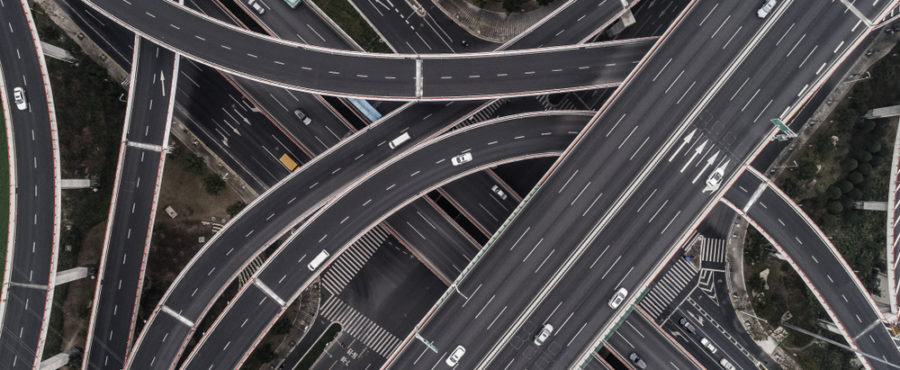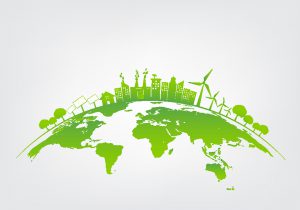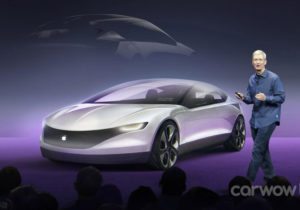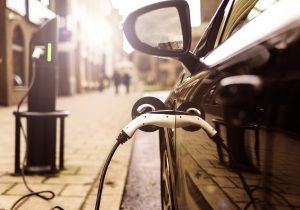
CO2 emission – EU norms and targets
In the nearest future, one of the greatest challenges for the automobile market will undoubtedly be the regulation of CO2 reduction. New thresholds adopted by the European Union, regarding decarbonization, i.e. curbing of carbon dioxide emission, are raising controversies. The auto industry in Poland still focuses on conventional technologies. The pressure exerted on heavy duty vehicles is huge, as CO2 emission reduction targets are extraordinarily ambitious. The emissions will have to be 15 per cent lower in 2025 than today and 30 per cent lower in 2030.
This decision is based on two premises. Firstly, wheel transport is one of the main factors contributing to global warming. Secondly, progress in this area occurs in vehicles. Though these statements are not false, they need to be formulated more precisely.
Scale of emission, challenges and efforts to achieve reduction
The omnipresent, and frequently underrated, wheel transport is involved in all the branches of economy. The majority of goods and products arrive to us on land. In Europe alone there are about 500,000 wheel transportation business entities, generating sales of nearly 300 billion euros. The development of road transport carries some downsides, particularly pollution generated by combustion engines contaminating the atmosphere, soil and waters. Additionally, the Energy Saving Trust reports that vehicles account for 30 per cent of all atmosphere pollution. According to a report presented by the Daimler corporation, heavy trucks account for 4 per cent of world’s CO2 emission, 10 per cent of which, or 0.4 per cent of total, is attributed to Europe. Based on the data from the Central Vehicle and Driver Register (CEPiK), out of 30 million cars registered in Poland, 3,5 million are trucks. To reduce emissions and improve the ecological balance, the Polish Association of Automotive Industry (PZPM) has started the “Electromobility Counter” this month. Now, electromobility is one of the key areas of development in the automotive market, which, among other things, is the result of car manufacturers’ sense of responsibility for natural environment. The industry’s actions are also stimulated by legislation, both nationally and at the EU level, says Jakub Faryś, PZPM President. Technological development made today’s vehicles much more environment-friendly. There have been some interesting initiatives in France, such as the TK’Blue agency, which offers shippers and transport services providers the possibility to calculate pollution, noise or accident indexes in order to stress their pro-ecological commitments.
Maxime Legardez, General Manager of Everoad, which today groups over 800 transportation businesses all over Europe and over 200 shippers, minimising empty mileage, says that the desire to buy “green transport” or comply with CSR standards is clearly growing on the part of dispatchers. Maxime adds that this progress is not, however, sufficient, given the ecological challenges and development prospects. In its ITF Transport Outlook 2017 report, the OECD estimates that the volume of cargo load will have tripled by 2050. If we continue the trend of the past 60 years, where the power efficiency of heavy trucks grew 1 per cent annually, CO2 impact will have doubled by 2050. These calculations may be erroneous, because we would have to assume that truck manufacturers will comply with EU norms and that lots of carriers will renew their fleets. In other words, the greatest challenge which the wheel transportation sector is facing is ecology. Despite the concerns, the OECD report points out that “route optimization and companies sharing trucks and warehouses would increase the load figures and reduce empty miles. Efficiency gained in this way could lead to reducing truck-generated CO2 by one third. Maxime Legardez, Everoad General Manager says that empty miles, which today account for 35 per cent of total mileage, is the automotive industry’s hope to reduce carbon emissions.
Unfortunately, not many carriers have tools for calculating and planning, as well as for cooperation with other carriers. Such tools and technologies are usually too costly and too complicated for small transport companies. As a result, most vehicles cannot be optimized and one in three trucks drives empty miles, which hugely impacts the environment. For the past five decades, the road carrier sector to a great extent lagged behind the rest of the economy as far as modernization is concerned. The European wheel transport market is very fragmented – 90 per cent of transport companies have fleets of less than 10 heavy vehicles each or hire less than 10 employees. Having no proper tools, these small, frequently family businesses are still managing their operations in very outdated, craftsmanlike manners.
Digitalization – a solution with potential
The solution to this problem seems to be a digital platform, which may host multiple players and provide information on available trucks in a simple, quick and affordable way. Such a digital platform may collect large volumes of data and information about wheel transport and help resolve the problem of lacking human resources as well as to reduce empty mileage. All this is key to cargo load optimisation. Even the smallest carriers may access state-of-the-art technologies or vehicle tracking tools like Track&Trace, and improve their eco-efficiency, quality and prices of services offered to their customers, which obviously boosts their competitiveness. A digital platform like Everoad may even today help reduce carbon emissions, as it is based on sophisticated algorithms. The European Union must definitely work out a compromise, properly weighing environmental, economic and social priorities. Wheel transport is exceptionally important. Without it, e-commerce and companies like Rossmann, Biedronka, Empik or Zalando as well as virtually all branches of industry are not able to operate. The future belongs to the Sharing Economy and the Everoad platform offers adequate solutions for transport companies, producers and retail chains.
Everoad is an innovative startup, directly connecting shippers and carriers, which facilitates the entire transportation process by cutting costs incurred by the customer and, at the same time, minimising carriers’ empty mileage. Everoad also helps its carriers preserve financial liquidity by offering a 72-hour payment program. Now the Everoad network groups over 4,500 transport companies with a total of 300,000 trucks all over Europe, which makes one of the largest European transport networks.
By: Katharina Arnold Rokita, CEO Kaliber Services




